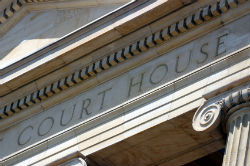Although most people think student loans can never be discharged, that is not always true. First, if the loan isn’t the type of student loan defined in the Bankruptcy Code, it is dischargeable the same as any other loan. Second, even if it is the defined type of student loan, it is still dischargeable if the person qualifies for a hardship discharge.
Three Types of Student Loan Debts
The Bankruptcy Code defines the type of student loan debts that may not be dischargeable. There are three types within the definition: (1) an overpayment of an educational benefit, scholarship or stipend; (2) a loan made, insured or guaranteed by a governmental unit or made under any program funded in whole or in part by a governmental unit or nonprofit institution; and (3) any “qualified education loan”. The first two don’t need a lot of explanation but a “qualified education loan” does. That is defined in the tax code and means a debt incurred solely to pay certain higher education expenses of the person filing bankruptcy, their spouse or dependents, and includes debts incurred to refinance a qualified education loan. However, a loan from a relative or company controlled by a relative is excluded, meaning it is fully dischargeable. A simple way to determine if it’s a “qualified education loan” is to look at whether the interest on the loan is deductible for income taxes. If it is, it’s a “qualified education loan”. If not, it isn’t. Also, the actual use of the loan funds doesn’t matter. If the purpose of the loan was to finance education, the fact the funds were used for something else doesn’t matter. Any loan or debt that is not included in the definition described in this paragraph is dischargeable the same as any other loan.
Hardship Discharge
If a debt is one that is included in the above definition, it’s still dischargeable if the person qualifies for a “hardship discharge.” In its simplest form, that means that the person’s income isn’t enough to pay basic living expenses and repay the loan. The person also has to show that this is unlikely to change in the future. There are many cases that have further defined this. Included are some cases that say that a portion of the loan may qualify for discharge if the person can repay some but not all of a loan. However, not all courts agree on partial discharge of a student loan. The case law in this area changes frequently, so anyone trying to discharge a student loan has to make sure they talk with an attorney who is familiar with all recent cases.
At the Law Offices of Thomas Jeffrey, in Santa Rosa, California, I have successfully discharged student loans under the hardship discharge and others that weren’t included in the definition of “educational” loan. I have seen loans discharged when the creditor failed to respond to a summons even though the loan may not have been dischargeable. On the other hand, the court usually requires some proof of dischargeability even if the creditor doesn’t timely respond.
Speak With an Experienced Santa Rosa Bankruptcy Attorney
The hardest part in discharging a student loan can be the cost. If a person may qualify for the discharge but the creditor does not agree on that issue, the only way to get the debt discharged is to file an “adversary proceeding” in the bankruptcy court. That is separate from the main bankruptcy case and the legal fees can be high. That can make the adversary proceeding very difficult for someone who’s trying to establish that they can’t meet basic living expenses and make payments toward the student loans. Anyone who wants to discharge a student loan should talk to an experienced attorney about the costs before the bankruptcy is filed. The attorney may be more willing to be flexible on the fees if it’s raised before he or she has been hired for the main case.
Administrative Discharge
If you can’t hire a Sonoma County attorney to try to discharge a student loan there may still be hope. “Administrative” discharges are available in some case. This is not a discharge under the bankruptcy code but is a more informal process where the creditor agrees that the borrower qualifies for discharge. Here’s a link for information on “discharging” a loan due to disability: http://www.disabilitydischarge.com/Application-Process. There are several other reasons that qualify for administrative discharge. Here’s a link for information on those: https://studentaid.ed.gov/repay-loans/forgiveness-cancellation.
FREE - Consultation With a Lawyer in Santa Rosa, California
If you have further questions regarding student loans or bankruptcy law, contact Santa Rosa Bankruptcy Lawyer Thomas Jeffrey to schedule a free initial consultation at (707) 543-8530 or fill out our online form.




